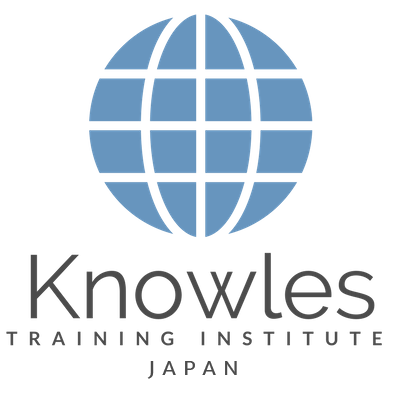Corporate Workplace Wellness Talk in Japan
Welcome to our Corporate Workplace Wellness Talk in Japan, where we delve into the importance of prioritizing employee well-being for organizational success in today’s fast-paced and demanding work environment. In Japan’s competitive corporate landscape, where employees often face high levels of stress and burnout, fostering a culture of wellness is essential for promoting productivity, engagement, and overall job satisfaction. This session aims to explore strategies and initiatives that organizations can implement to support the holistic well-being of their employees and create a healthier, happier, and more productive workplace.
In today’s hyper-connected world, the well-being of employees is paramount to the success and sustainability of any organization. This Lunch Talk provides valuable insights and practical tips for organizations in Japan looking to prioritize workplace wellness and cultivate a positive and supportive work environment. By investing in the physical, mental, and emotional health of employees, organizations can enhance employee engagement, reduce absenteeism, and ultimately drive greater business performance and success.
Talk Objectives:
- Understanding Workplace Wellness: Define workplace wellness and its significance in promoting the physical, mental, and emotional well-being of employees in the corporate setting. Explore the holistic nature of wellness, encompassing physical health, mental resilience, emotional intelligence, and work-life balance.
- Recognizing the Importance of Employee Well-Being: Understand the impact of employee well-being on organizational performance, productivity, and employee retention. Recognize the financial and non-financial benefits of investing in workplace wellness initiatives, including reduced healthcare costs, improved employee morale, and enhanced organizational reputation.
- Identifying Key Workplace Stressors: Identify common workplace stressors and factors contributing to employee burnout, such as heavy workloads, tight deadlines, lack of work-life balance, and poor communication. Explore the impact of stress on employee health, job satisfaction, and overall performance.
- Promoting Physical Health and Wellness: Implement strategies to promote physical health and wellness in the workplace, including providing access to ergonomic workstations, promoting regular physical activity, encouraging healthy eating habits, and offering workplace wellness programs, such as fitness challenges and health screenings.
- Supporting Mental Health and Resilience: Raise awareness about mental health issues in the workplace and provide resources and support for employees struggling with stress, anxiety, depression, or other mental health challenges. Offer employee assistance programs (EAPs), mental health workshops, and resilience training to help employees cope with workplace pressures and build emotional resilience.
- Creating a Positive Work Environment: Foster a positive work environment that values open communication, mutual respect, and psychological safety. Encourage supportive relationships among colleagues, recognize and celebrate achievements, and promote a culture of inclusivity, belonging, and appreciation.
- Encouraging Work-Life Balance: Promote work-life balance by offering flexible work arrangements, such as telecommuting, flexible hours, or compressed workweeks. Set clear expectations around work hours and workload, encourage employees to take regular breaks and vacations, and lead by example by prioritizing self-care and work-life balance.
- Providing Skills Training and Development: Offer skills training and development opportunities to help employees build resilience, manage stress, and enhance their overall well-being. Provide workshops on time management, stress management, mindfulness, and other personal development topics to equip employees with the tools and strategies to thrive in the workplace.
- Fostering a Culture of Wellness: Foster a culture of wellness that values and prioritizes employee well-being as a strategic priority. Engage leadership support and involvement in wellness initiatives, empower employees to take ownership of their health and well-being, and create opportunities for feedback and dialogue around wellness-related issues and concerns.
- Measuring and Evaluating Impact: Implement mechanisms to measure and evaluate the impact of workplace wellness initiatives on employee health, engagement, and organizational performance. Collect feedback through surveys, focus groups, and performance metrics to assess the effectiveness of wellness programs and identify areas for improvement and refinement.
The Corporate Workplace Wellness Talk has provided valuable insights and practical strategies for organizations in Japan to prioritize employee well-being and create a healthier, happier, and more productive workplace. By investing in workplace wellness initiatives and fostering a culture of well-being, organizations can enhance employee engagement, reduce absenteeism, and ultimately drive greater business success and sustainability. Together, let’s build a workplace where employees thrive, flourish, and achieve their full potential.
Ready to prioritize workplace wellness and create a healthier, happier, and more productive workplace in Japan? Start by implementing some of the strategies and initiatives discussed in this Lunch Talk, such as promoting physical health and wellness, supporting mental health and resilience, fostering a positive work environment, and encouraging work-life balance. By investing in the well-being of your employees, you can create a culture of wellness that drives employee engagement, retention, and organizational success. Let’s work together to build a workplace where everyone can thrive and succeed.
More Information:
Duration: 60 minutes
Fees: $1899.97 USD 991.50
For more information please contact us at: contact@knowlesti.co.jp
If you would like to register for this talk, fill out the registration form below.

